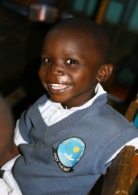The World Health Organization recently released its “Regional Strategic Plan for Neglected Tropical Diseases in the African Region 2014 - 2020” alongside an accompanying regional NTD strategy, aimed at accelerating the reduction of the disease burden by controlling, eliminating and eradicating targeted NTDs in the African Region.
Focus and Objectives
The Regional Strategic Plan is anchored on four objectives focused on strengthening programme capacity to achieve NTD goals and targets, in line with WHO produced
Global NTD Roadmap and the recent
World Health Assembly resolution on NTDs.
The four objectives outlined in the Plan are: scaling up access to interventions and building the capacity of health systems; enhancing planning for results, resource mobilization and financial sustainability of national NTD programmes; strengthening advocacy, coordination and national ownership, and enhancing monitoring, evaluation, surveillance and research.
The Plan also sets out in detail the actions that should be taken by Member States, Partners and WHO in order to achieve the objectives.
Dr Francis Kasolo, the Director of the Disease Prevention and Control Cluster at the WHO Regional Office for Africa said,
"The targets of the Plan by 2020 include the eradication of guinea-worm disease and yaws; sustained elimination of leprosy; the regional elimination of elephantiasis (Lymphatic Filariasis) and blinding trachoma; elimination of river blindness (onchocerciasis) and bilharzia (schistosomiasis) in majority of countries.”

The Impact of NTDs on Child Development
Children are the most vulnerable to NTDs. For example, hookworm infection in school-age children contributes to drops in school attendance, poor performance and reduction in future earnings – by as much as 40 per cent, according to some estimates.
Controlling or eliminating NTDs will contribute significantly to lifting millions of persons out of poverty by increasing access to education because NTDs are believed to infect more than 400 million school–aged children throughout the developing world. Therefore, treating their infections is the single most cost–effective way to boost school attendance, opening the door to growth and learning for the next generation of workers.
Is the end in sight for NTDs in the African Region?
The answer may well lie with how the Regional NTD Strategy and the Regional Strategic Plan for NTDs are implemented to realize the vision of “an African Region free of Neglected Tropical Diseases”.

